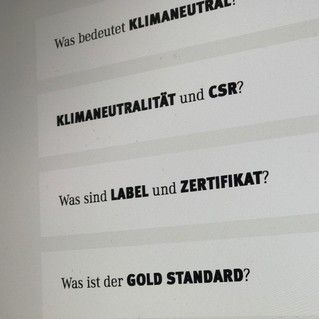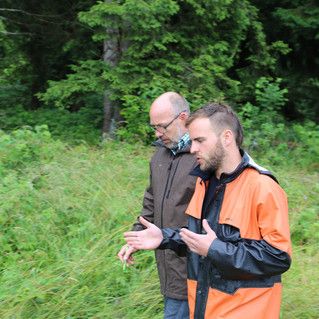Shall we or should´nt we -
voluntarily offsetting CO2-Emissions?
Sitting out climate problems by ignorance or repression can´t be the solution...
... far away and superior to that would be, for example, to become aware of, reduce and best eliminate CO2 emissions by identifying their CO2 footprint.
However, as long as this "shutdown" is not yet possible, carbon offsetting is the best way to get rid of emissions quickly and effectively.
This creates time for the development of further innovations or mechanisms in the field of voluntary climate protection. So yes, it makes sense to know your carbon footprint - and YES, offsetting CO2 emissions is an investment in the future!
Offsetting carbon emissions -
first step or better last?
As the most effective activity in the short-term, necessary
climate protection we see as natureOffice the voluntary
offsetting of CO2 emissions as the first step.
The approach Avoid - Reduce (which is justified), however, suggests a temporal sequence of actions that does not correspond to the actual time sequence.
Avoiding and reducing emissions is certainly economically and morally right, but it is contrary to the goal of the world's maximum reduction of CO2 emissions.
Companies should be pursued in parallel, both for reasons of cost efficiency.
Avoiding, reducing and offsetting.
Offsetting only "unavoidable" CO2-emissions?
Yes, the "avoid-reduce-offset" approach is often linked to the statement that only unavoidable greenhouse gas emissions should be compensated.
But:
No. Looking at the corporate communications of some companies, one could believe that only the "unavoidable" CO2 emissions were given permission to be offset.
The prerequisite for offsetting carbon emissions is first of all to avoid emissions, then to reduce unavoidable CO2 emissions through various efficiency measures and only then to offset CO2 emissions, which can not be further reduced.
For us as natureOffice, this approach certainly has its justification, but inevitably leads to putting the offsetting of CO2-emissions in the ranking of climate protection measures in last place.
Likewise, the avoidance and reduction activities that have not yet been implemented provide sufficient legitimacy for why, as a company, it is not necessary to offset CO2 emissions.
Also, the approach that only "unavoidable" greenhouse gas emissions should be balanced is a precondition that does not exist. For who determines what can be avoided? Is a vacation trip or a car drive avoidable? Since this is subjective, there can be no precondition of this kind.


















